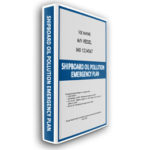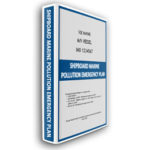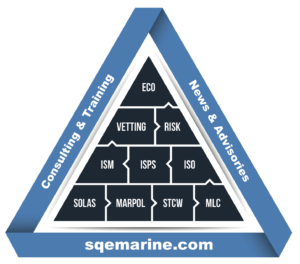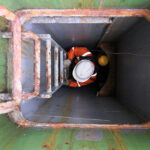In order to ensure ongoing compliance with MARPOL Annex I Regulation 37.2.4 and MARPOL Annex II Regulation 17.2.4, vessels should have access to a list of authorities or persons to be contacted in the event of pollution incident. Therefore,
- a Shipboard Oil Pollution Emergency Plan (SOPEP), carried by vessels over 400 GT, and
- a Shipboard Marine Pollution Emergency Plan (SMPEP), carried also by vessels of 150 GT and above, certified to carry noxious liquid substances in bulk,
should contain the latest IMO List of National Operational Contact Points Responsible for the Receipt, Transmission and Processing of Urgent Report on Incidents Involving Harmful Substances, Including Oil from Ships to Coastal States.
Resolution MEPC.54 (32), as amended by MEPC.86 (44) on the SOPEP Guidelines and resolution MEPC.85 (44) as amended by MEPC.137 (53) on the SMPEP Guidelines, adopted by the IMO, require that SOPEP and SMPEP should include as an appendix, the latest list of agencies or officials of administrations, responsible for receiving and processing reports on incidents involving oil and/or harmful substances. The IMO is issuing every three months the updated list of national operational contact points for these shipboard pollution emergency plans.
Actions required
In the overview of deficiencies identified during PSC inspections, a very common item is the SOPEP and the SMPEP being ‘‘not as required’’, which implies that the manuals have not been supplied with the latest and updated MSC-MEPC.6/Circ.20 from IMO. To avoid this, ship managers should provide on board their vessels the latest list of national operational contact points.
From January 2018 onwards, the official version of the updated list will be issued electronically and uploaded here on a quarterly basis. Quarterly dates: 31 January, 30 April, 31 July and 31 October.
Further information
- IMO MSC-MEPC.6/Circ.20: List of National Operational Contact Details
- Resolution MEPC.86(44): Amendments to the Guidelines for the Development of SOPEP
- Resolution MEPC.137(53): Amendments to the Guidelines for the Development of SMPEP
See also our related products








